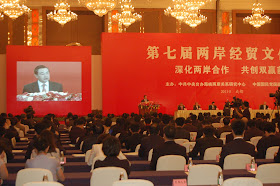 His hands full with two major wars and an unstable North Korea, US Secretary of Defense Robert Gates made sure the Pentagon did not contradict the White House and the NSC on Taiwan and China
His hands full with two major wars and an unstable North Korea, US Secretary of Defense Robert Gates made sure the Pentagon did not contradict the White House and the NSC on Taiwan and ChinaIn his book Obama’s Wars, Bob Woodward writes that rather than take the lead on policy, Robert Gates tends to carefully evaluate which direction the wind is blowing in Washington before committing himself. This assessment of Gates’ personality as an old political survivor is supported by his role in shaping — or not shaping — US policy on Taiwan.
Over the years, few things have encapsulated Washington’s relations with Taipei as arms sales to Taiwan, an exercise whose significance goes well beyond the actual military items acquired by the island. In fact, arms sales have become a symbol of Washington’s commitment to the Taiwan Relations Act, which was signed into law in 1979 after the United States switched diplomatic ties from Taipei to Beijing.
During Gates’ tenure, the Pentagon was largely uninvolved in decision-making regarding the balance of power in the Taiwan Strait. The US, per its commitments under the TRA, must endeavor to ensure that Taiwan has the means to defend itself against China. That the balance of power has been allowed to shift to such an extent in Beijing’s favor is a reflection of policy preferences at the White House, the National Security Council and the State Department.
My take on Gate’s legacy, part of a photo essay in The Diplomat, continues here. Don’t miss the assessments by other commentators on Gates’ impact on the region.



















